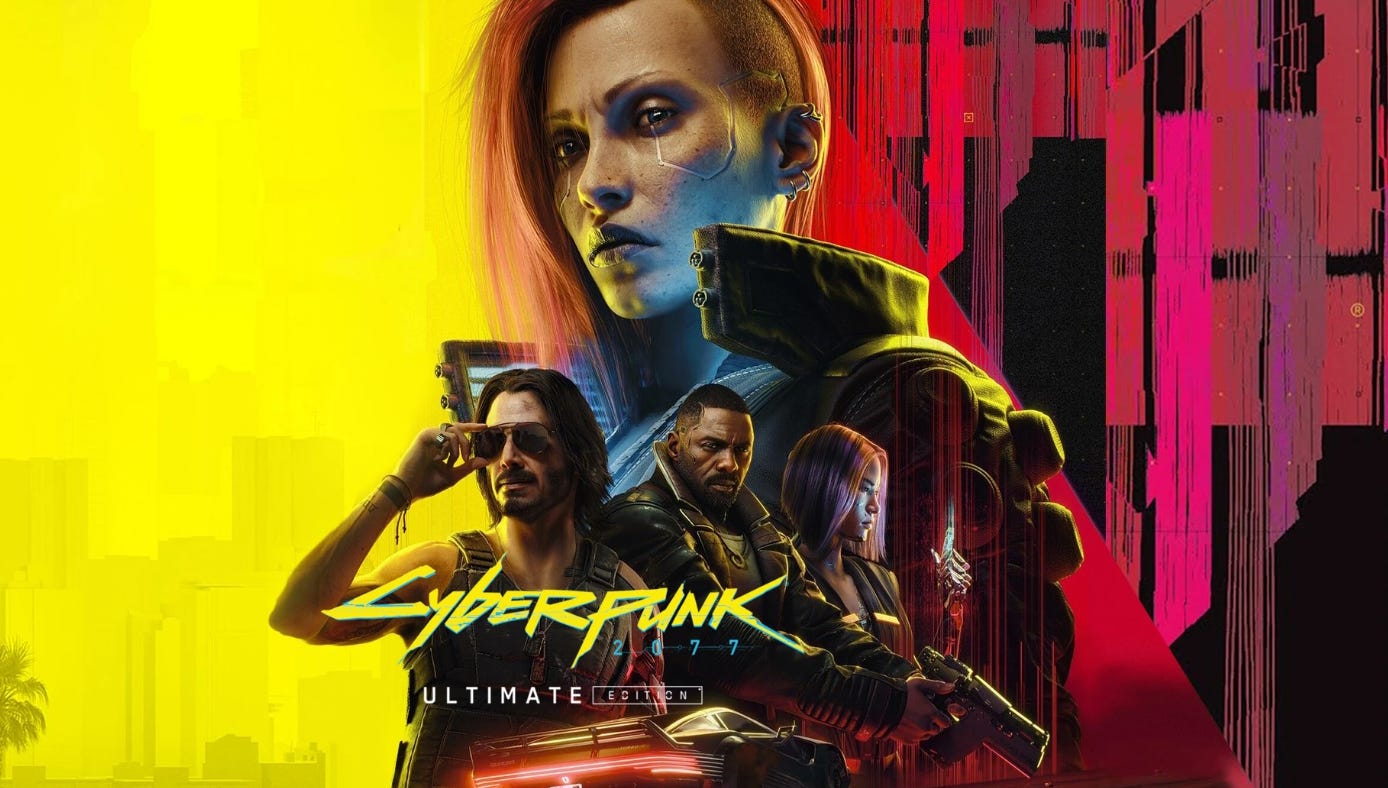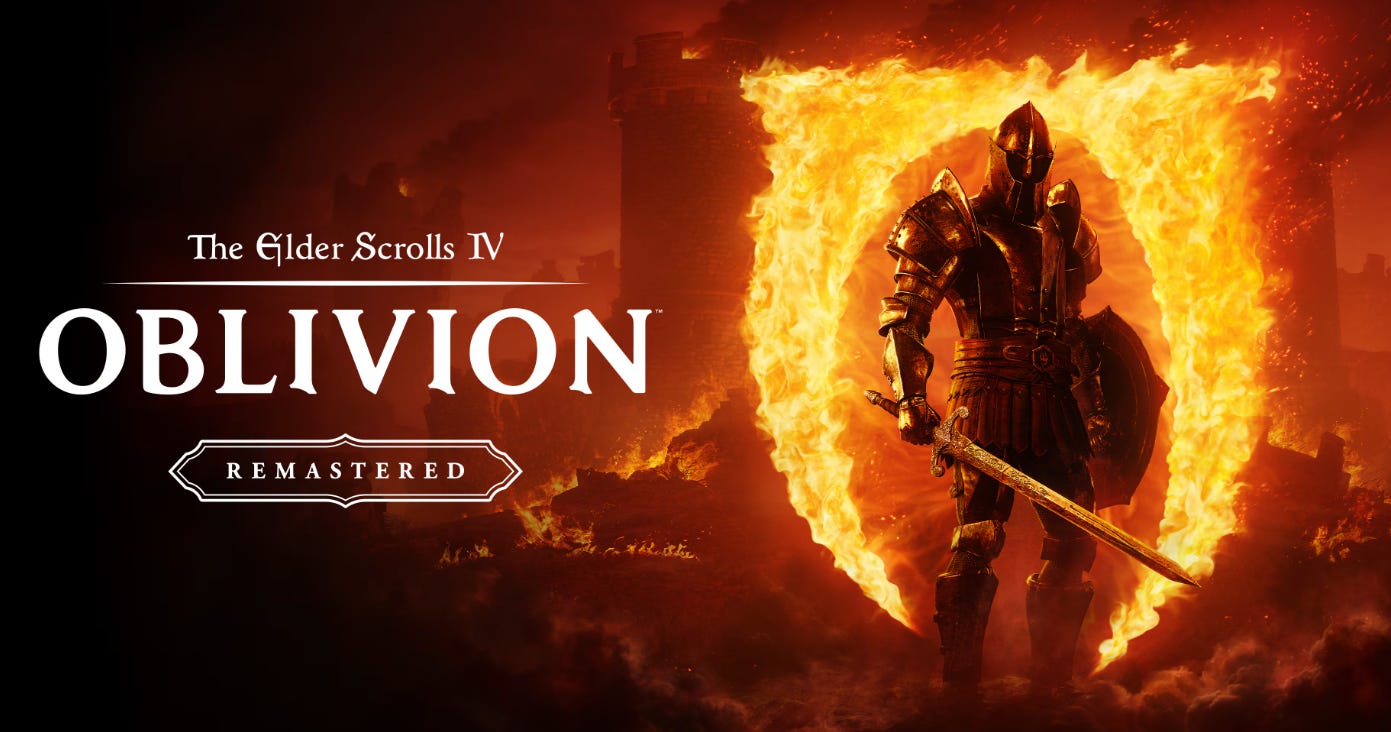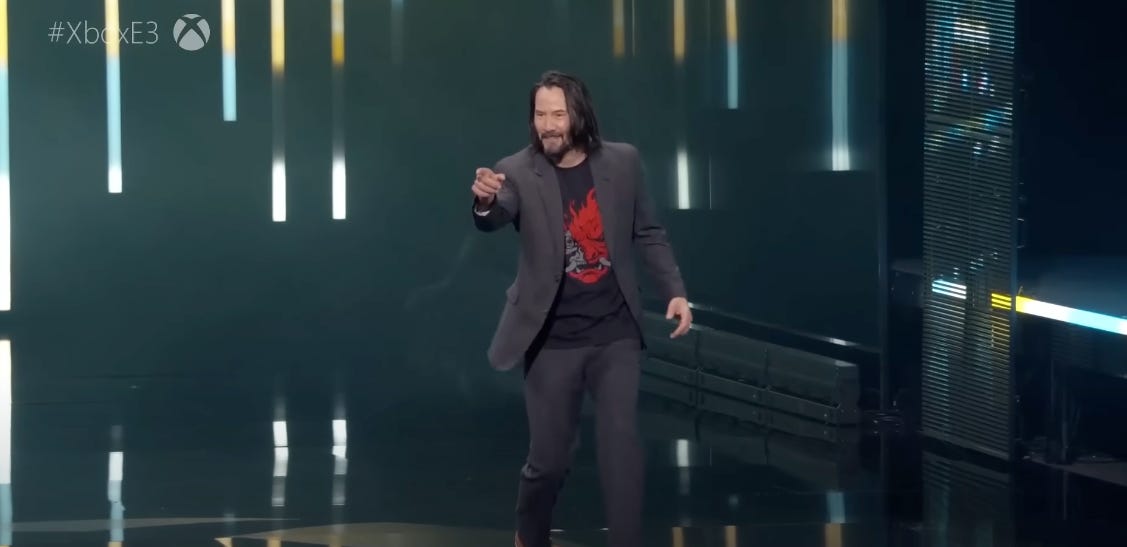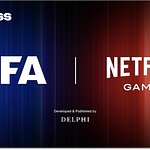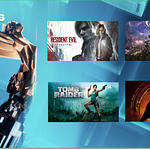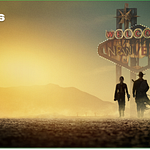Listen now on Apple, Spotify or YouTube
In This Edition
- Why physical events matter
- What a changing media means for marketers
- Where to announce your game
- The future of game marketing
Last week at Gamescom, we recorded an edition of The Game Business Show in front of a live audience.
The Show was part of an event held by Keywords Studios (it was called The Keywords Studios Supercharged Summit). And we talked about the current state of game media and marketing, with a bit of a focus on digital and physical events.
And we had quite the panel. We were joined by media expert Rupert Loman, who is best known for launching Eurogamer and GamesIndustry.biz, and continues to work with outlets including Digital Foundry. He is also the CEO of Just, which supports influencers and creators.
We were also joined by Caroline Miller, the founder and head of award-winning PR agency Indigo Pearl, which has worked with some of the biggest game publishers in the world.
Alongside Caroline was Michał Platkow-Gilewski, the VP of public relations and communications at CD Projekt Red, and has delivered the epic campaigns for games such as The Witcher 3 and Cyberpunk 2077.
And finally there was Samantha Lester, the studio head of ICHI Worldwide, which has built marketing and brand campaigns for major projects like Destiny 2, Stellar Blade and Monster Hunter Wilds.
You can watch the Show above, or via your podcasting platform of choice. But I’ve also selected five key takeaways, and you can read those below.
Enjoy!
Cyberpunk 2077’s launch debacle changed CD Projekt Red’s view on events
One of the big topics was on digital and physical events. CD Projekt loves an event. The firm is frequently seen at shows, and hosts numerous bespoke showcases, including its recent Witcher concert.
Michał Platkow-Gilewski tells us that this appreciation for physical events was partly informed by what happened with Cyberpunk 2077. The game was highly anticipated after a series of impressive reveals, but it had a calamitous launch and failed to live up to expectations (initially).
“We had these wonderful E3s in 2018 and 2019, but then we had COVID and we went full digital,” he recalled. “We fell in love with digital formats. It was really easy. We had our own studio where we could record everything.
“But the one mistake, or thing we missed, were physical events. Places and moments when we could have dialogue with community, with gamers, with influencers, with journalists… with everyone. Events are great for setting expectations and managing them, because you can get a feeling for what they are thinking. When you are in the online world, it’s way harder. After Cyberpunk 2077, and we were promoting [Cyberpunk expansion] Phantom Liberty, we decided that physical events would be a really important part of the campaign. We created the Phantom Tour, which were a series of events where we went around the world, from Brazil to Japan, and met with journalists, with influencers, but mostly with gamers. We were presenting them the game in a cinema, and then they had a chance to play.”
“Events are great for setting expectations and managing them, because you can get a feeling for what [people] are thinking”
CD Projekt Red repeated the approach for the Switch 2 release of Cyberpunk 2077, by including it within Nintendo’s promotional tour. And again, this helped set the expectation over what the game would (and wouldn’t) be like on Nintendo’s new machine.
Caroline Miller said this is also a lesson for smaller developers.
“What we advise, particularly smaller indies, is to get some outside eyes on your game. That’s why events are magic. Developers are playing the game for the first time with the audience, and sometimes the feedback is not what you expected. You see developers get far down the road with a game, and by the time they take it out to get feedback, it can be quite late. And it could be something that’s an easy fix.”
Sponsor Message
Green Man Gaming on Gaming for Good
Green Man Gaming is creating new revenue streams and discoverability options that will help businesses extend games’ lifecycle and grow their audience.
It recently revealed its Charity Bundles platform: a curated way for publishers to reach new audiences, generate incremental revenue, and support causes that matter. The platform offers transparent stock levels, instant key fulfilment, and regional pricing - all while raising funds for charities like SpecialEffect’s One Special Day. Get involved at: www.greenmangaming.com/company/charity-bundles.
Elsewhere, Green Man Gaming Distribution is a new service that helps studios boost discoverability by activating titles across 180+ vetted retailers, reaching over 100m gamers and delivering up to 20 - 30% more revenue compared to Steam-only sales.
The rise of niche, specialist media publications is a challenge for PR
We have covered the decline of the specialist game media on The Game Business already, with publications scaling back or closing entirely.
But there has been a rise in super-specialist outlets on YouTube and Substack, which are being funded directly by their audiences.
These publications no-longer have to manage multiple masters. They are not having to answer to Google (which brings the traffic), advertisers (which bring the revenue) and the readers. They just need to focus on that last group, which can pose a challenge for PR and marketing teams.
“As we move into this AI sludge world, people are going to want curation and expert opinion”
“It’s reminiscent of print magazines, where for £5 a month, if you had 10,000 people buying it, that could be a viable business,” Rupert Loman told us.
“And that’s exactly what the Patreon model is for super-specialist outlets. Being supported directly by the end consumer is a much healthier place in terms of reliability and predictability of revenue. It also means the people working on those can just serve their audience, rather than Google and their audience, and struggling with that mix, which everyone has been doing over the last few years.
“So it is healthier, but it is a challenge because if they are incorruptible, maybe unadvertisable, publications, how do you infiltrate that from a PR and marketing point-of-view? And how do you track the really exciting tastemakers? It used to be… send your press release to IGN and GameSpot and Eurogamer and hope they cover it. Or make sure they do. But now if you’ve got something really specialist, how do you get their attention? But that comes down to respecting their time, making sure you’re putting great assets in front of them, making that great first impression, and being super specific in the targeting of the outlets.”
Another way to reach these publications is via indirect means, Miller added.
“As we move into this AI sludge world, people are going to want curation and expert opinion,” she said. “[These specialist outlets] are not in a vacuum, they’re going to be looking at things that are popping off on Twitter or TikTok. Everything feeds into itself. And the hype you’re creating over here will be informing these guys as well.”
Shadow drops remain a high-risk strategy
We’ve seen a rise in games being announced and released on the same day, which is a tactic called the ‘shadow drop’. One of the best-selling games of 2025 so far, the remaster of Bethesda’s Elder Scrolls V: Oblivion, was one such launch.
But it’s clear from our panel that this is not usually recommended.
“Are you interesting enough to do that?” asks Miller. “Are you Hades 2? Are you Oblivion? When people see that, are they going to go: ‘Oh my god’, or are they going to go: ‘what is this?’ It goes back to knowing yourself and really understanding where you fit.
“And then having the infrastructure in place to make sure that when you do that, it doesn’t all just fall over.”
Samantha Lester added: “It is a high-risk strategy. It can pay off, but part of that is having a really strong creative, having all your ducks in a row in terms of what is happening with community and with your assets. And you have to go big, and bold, and quick, and unified, and that is how you get that cut through.”
Of course, another risk is if something comes along and spoils your one big moment.
“There are some black holes that when they happen, everything else disappears,” Platkow-Gilewski said. “In most cases, you know about them and can predict them. But not always. When Elden Ring was released, it killed YouTube for everything else. On YouTube, it was all guides, how to beat a boss, tricks and tips… for six weeks. So, anyone that had a cool strategy for YouTube during that timeframe, it didn’t work.”
Be prepared to capitalise on ‘luck’
Platkow-Gilewski reflected on the famous Cyberpunk 2077 moment when CD Projekt Red announced Keanu Reeves as the star of the game. The firm had planned a big reveal at Xbox’s E3 2019 conference, including a trailer that gradually built to the reveal and Reeves himself appearing on stage,
But it was something that wasn’t in the script that made it the moment of the show. The Hollywood actor came out on stage, he described the game as breathtaking, a fan shouted ‘you’re breathtaking’ and Reeves shouted it back. The moment went viral.
“That was all you could pray for,” Platkow-Gilewski said. “But you can’t design for that. You can just create opportunities. There is always this luck factor, and you have to help luck, basically.”
Loman points out that “hoping for luck” is not a strategy, but you can put yourself in a better position to react to opportunities. Samatha Lester even recommends a modular approach to creating assets.
“It needs to be adaptable,” she said. “We’ve all experienced times in campaigns when, out-of-nowhere, something comes to fruition and you want to capitalise on it. Content that can be adapted is sensible in this climate, and it’s something we try to do when working on campaigns. It also helps with budgetary restrictions, because it can be hard to magically find more money to create new content. So, we make that part of our thinking when we’re developing the creative.”
Developers must engage with PR and marketing teams
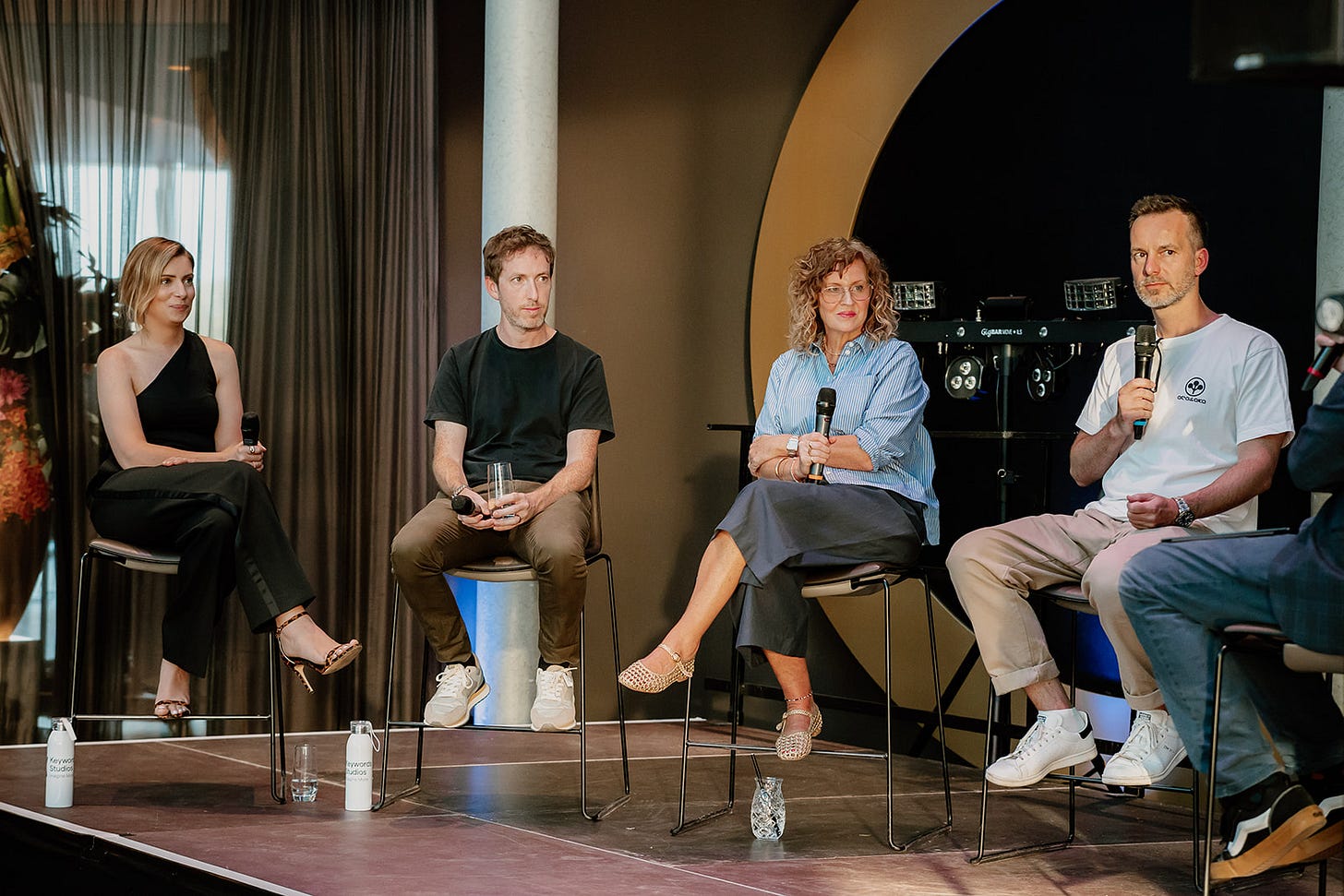
At E3 2015, I interviewed former Bethesda marketing boss Pete Hines and asked how involved the creative teams are in promoting their games.
Hines told me they were completely involved. He said that the first time that people experience a game is not when they start playing it, but when they see that launch trailer or that screenshot. Therefore, the development team must be across marketing and PR.
And that’s a view shared by our panel.
“The link between developers and the people executing [campaigns] needs to be really close,” Platkow-Gilewski said. “There needs to be an understanding of what the game really is, how it can appeal to others, and then you build a strategy based on that. You can’t forget about this element. The smaller the company is, the more focused they probably are on making the game, and they should somehow plan for this other part.”
Lester added: “Sometimes games are misrepresented, because of this drive to market it and deliver success, but actually that’s the quickest way to isolate gamers. You have to be authentic to what you’re creating.”
Platkow-Gilewski again: “That may be the biggest mistake. The whole campaign showing something the game is not.”
There was a whole lot more from our panel, including the role of short-form video in campaigns, how to approach community and how to choose where (and how) you announce your title. You can check out the full session from our Gamescom live recording above.
That’s it for today’s Show. We will be back on Thursday as we dive into the numbers behind some of the biggest titles of Gamescom, including Hollow Knight: Silksong. Plus, we speak to Cronos and Silent Hill developer Bloober Team. Until then, thank you for reading.



